Full program here:
www.unicog.org/seeing-the-m...
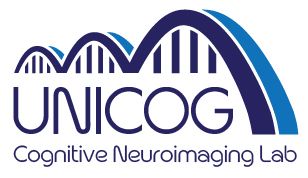
Full program here:
www.unicog.org/seeing-the-m...
Others—like 26 or 34—don’t get the same attention.Why? In our new paper with @standehaene.bsky.social and @mathiassablemeyer.bsky.social, we argue it's because of how the mind builds number concepts.
🧵
doi.org/10.1016/j.co...
Others—like 26 or 34—don’t get the same attention.Why? In our new paper with @standehaene.bsky.social and @mathiassablemeyer.bsky.social, we argue it's because of how the mind builds number concepts.
🧵
doi.org/10.1016/j.co...
‘Emergence of Language in the Developing Brain’,
by L Evanson, P Bourdillon et al:
- Paper: ai.meta.com/research/pub...
- Blog: ai.meta.com/blog/meta-fa...
- Thread below 👇
‘Emergence of Language in the Developing Brain’,
by L Evanson, P Bourdillon et al:
- Paper: ai.meta.com/research/pub...
- Blog: ai.meta.com/blog/meta-fa...
- Thread below 👇
Pourquoi la tribune du 29 avril signée par cinq sociétés médicales est tout sauf un argumentaire rigoureux fondé sur des résultats probants.
Ma nouvelle chronique en libre accès dans l'Express:
www.lexpress.fr/sciences-san...

Pourquoi la tribune du 29 avril signée par cinq sociétés médicales est tout sauf un argumentaire rigoureux fondé sur des résultats probants.
Ma nouvelle chronique en libre accès dans l'Express:
www.lexpress.fr/sciences-san...
👂Ever struggled to understand natural speech in a noisy environment? 🤔
Our new research shows that moving rhythmically can actually help you hear better!
royalsocietypublishing.org/eprint/ZWRPM...
with: @strijkers.bsky.social & Noémie teRietmolen
🧵👇
👂Ever struggled to understand natural speech in a noisy environment? 🤔
Our new research shows that moving rhythmically can actually help you hear better!
royalsocietypublishing.org/eprint/ZWRPM...
with: @strijkers.bsky.social & Noémie teRietmolen
🧵👇
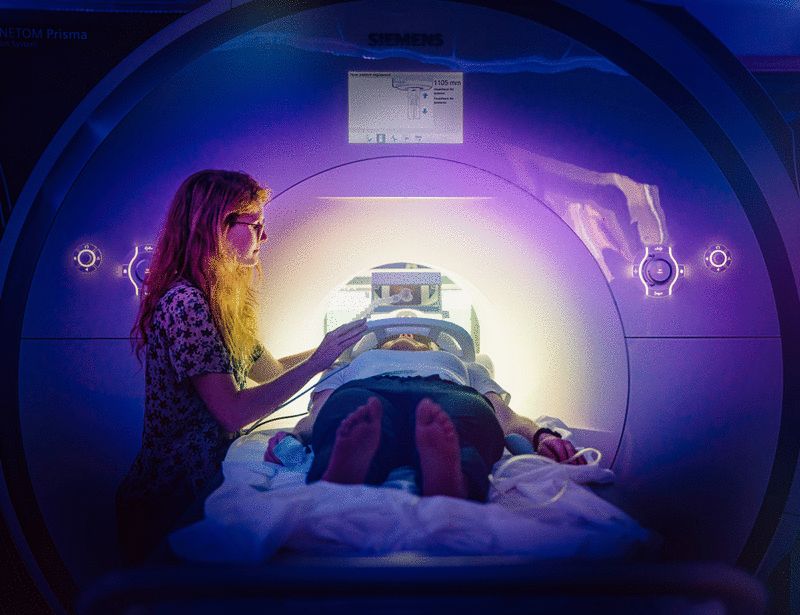
Details here: tinyurl.com/5ff9hcjj
Apply here: emploi.cnrs.fr/Offres/Docto...
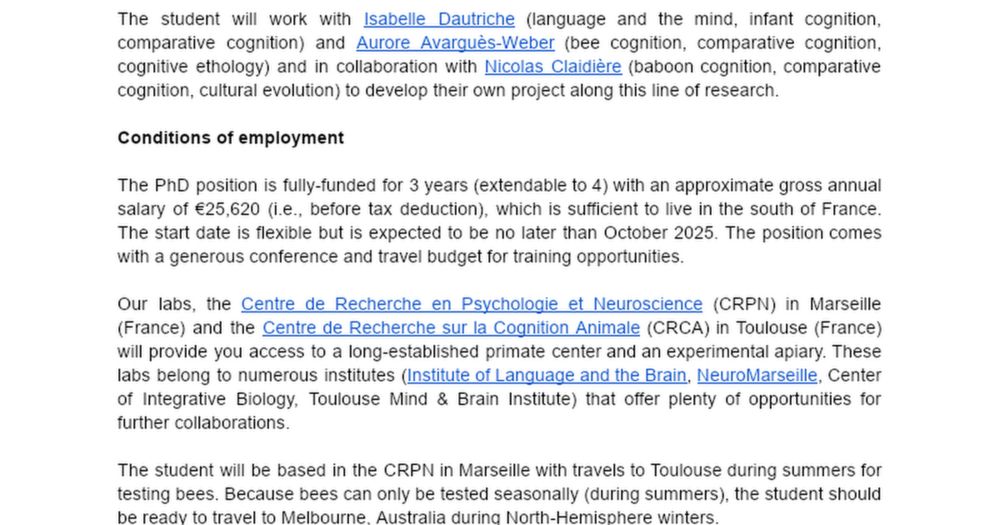
Details here: tinyurl.com/5ff9hcjj
Apply here: emploi.cnrs.fr/Offres/Docto...
NeuroSchool PhD contracts in neuroscience are available at Aix Marseille University, France:
I submitted one project (#11) for the call for international PhDs:
"Investigating Music Listening in Human and Non-Human Primates."
NeuroSchool PhD contracts in neuroscience are available at Aix Marseille University, France:
I submitted one project (#11) for the call for international PhDs:
"Investigating Music Listening in Human and Non-Human Primates."
We used EEG to show that from birth, human newborns can compute statistical regularities in various dimensions of language, in particular phonemes and voices.
elifesciences.org/articles/101...
⬇️

We used EEG to show that from birth, human newborns can compute statistical regularities in various dimensions of language, in particular phonemes and voices.
elifesciences.org/articles/101...
⬇️
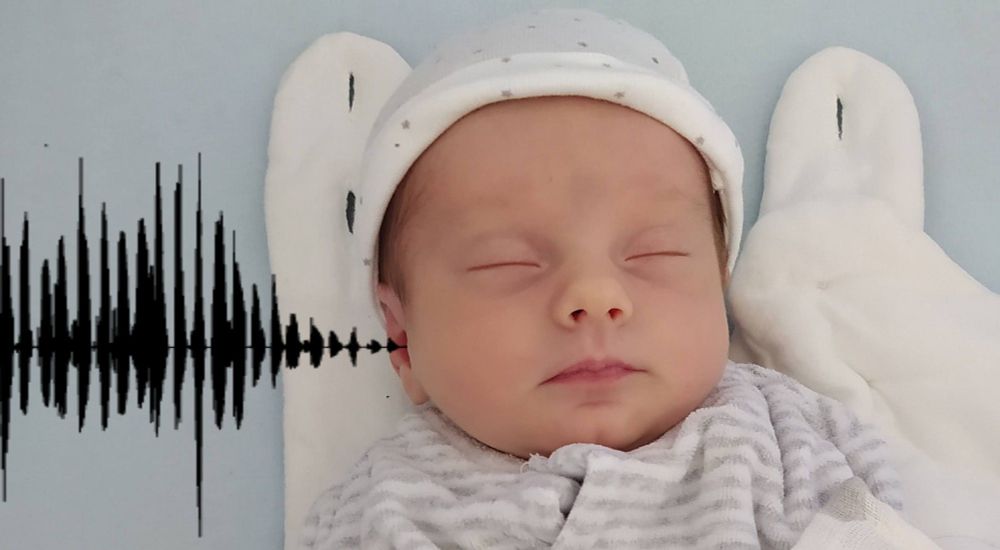
Mathias Sablé-Meyer used behavior, fMRI and MEG to study the mental representation of geometric shapes (quadrilaterals ranging in regularity from squares and rectangles to random figures).
www.biorxiv.org/content/10.1...
Mathias Sablé-Meyer used behavior, fMRI and MEG to study the mental representation of geometric shapes (quadrilaterals ranging in regularity from squares and rectangles to random figures).
www.biorxiv.org/content/10.1...
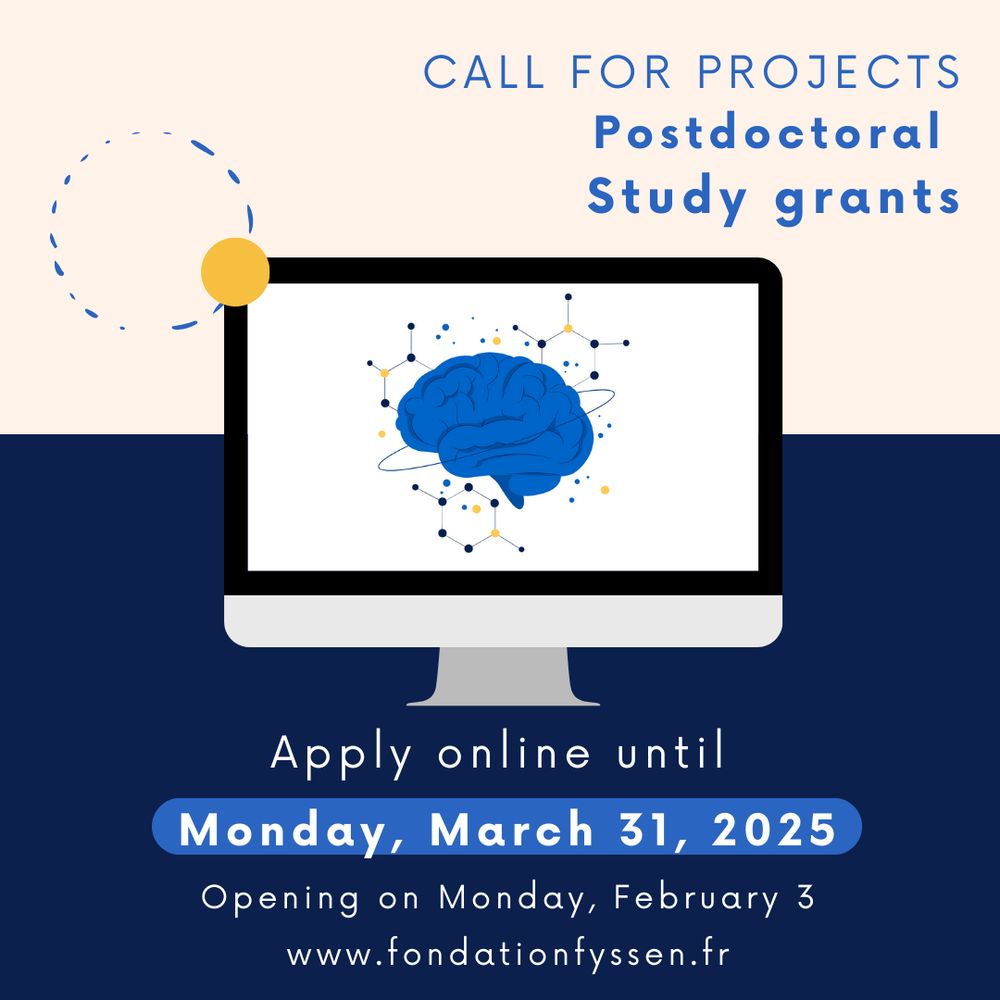
Excited to share our work in Science Advances:
"The human auditory cortex concurrently tracks syllabic and phonemic timescales via acoustic spectral flux."
www.science.org/doi/full/10....
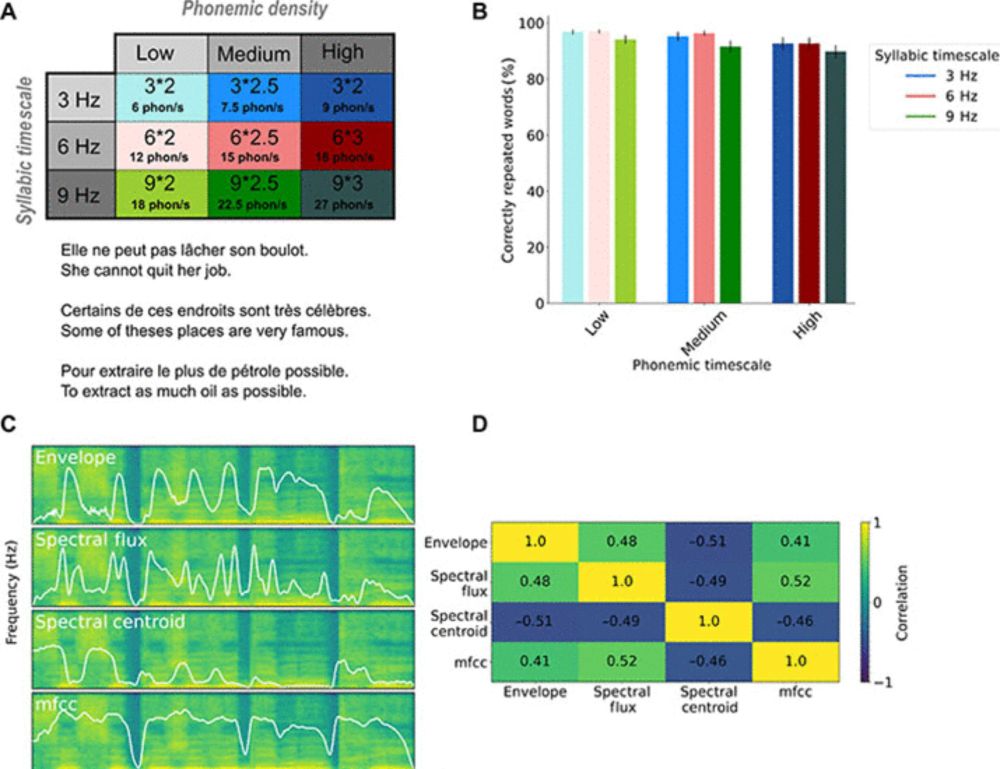
Excited to share our work in Science Advances:
"The human auditory cortex concurrently tracks syllabic and phonemic timescales via acoustic spectral flux."
www.science.org/doi/full/10....
Performance of standard reinforcement learning (RL) algorithms depends on the scale of the rewards they aim to maximize.
Inspired by human cognitive processes, we leverage a cognitive bias to develop scale-invariant RL algorithms: reward range normalization.
Curious? Have a read!👇
Performance of standard reinforcement learning (RL) algorithms depends on the scale of the rewards they aim to maximize.
Inspired by human cognitive processes, we leverage a cognitive bias to develop scale-invariant RL algorithms: reward range normalization.
Curious? Have a read!👇

«These results show that, from birth, multiple input regularities can be processed in parallel and feed different higher-order networks.»
Revised version soon in @elife.bsky.social

«These results show that, from birth, multiple input regularities can be processed in parallel and feed different higher-order networks.»
Revised version soon in @elife.bsky.social

